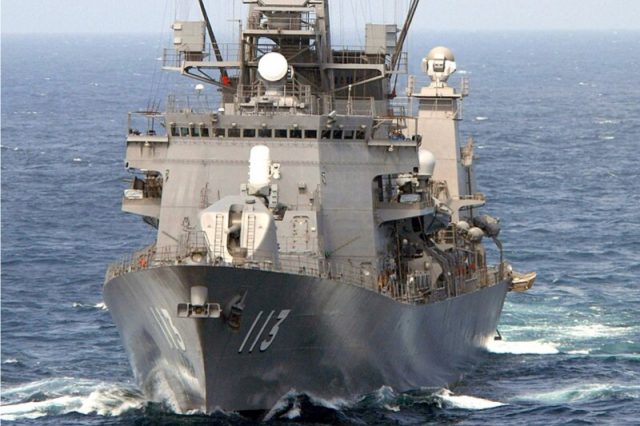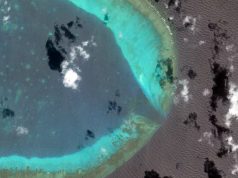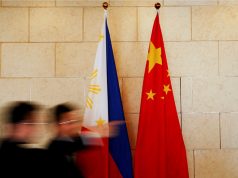
TOKYO — Japan’s Self Defense Force patrolled the Taiwan Strait on Wednesday for the first time in an attempt to send a message to China, the Yomiuri newspaper reported, citing multiple government sources.
SDF destroyer Sazanami entered the waters from the East China Sea on Wednesday morning, spending more than 10 hours sailing southward to complete the passage, the Japanese newspaper reported on Thursday.
The passage was conducted in concert with naval ships from Australia and New Zealand, the paper said, adding the three nations’ navies were scheduled to hold joint exercises in the South China Sea starting on Thursday.
Japanese Chief Cabinet Secretary Yoshimasa Hayashi declined to comment on the report, while expressing concern about China’s increased military activity in the region.
“We have a strong sense of crisis that airspace violations have occurred one after another over a short period of time,” he told a regular press conference. “We will continue to monitor the situation with strong interest.”
Japan has responded to stepped-up Chinese military activity with a defence buildup it says aims to deter Beijing from using military force to push its territorial claims in the region.
The Yomiuri said Japan’s SDF had hitherto avoided sailing through the Taiwan Strait so as not to upset Beijing, which says it alone exercises sovereignty and jurisdiction over the strait. China claims democratically governed Taiwan as its own.
The U.S. navy and others periodically pass through the Taiwan Strait to claim “freedom of navigation”. The German navy also made the transit this month for the first time in two decades, demonstrating Berlin’s resolve to stand with Western allies.
The Taiwan Strait is a major trade route through which about half of global container ships pass.
China on Wednesday said it had successfully conducted a rare launch of an intercontinental ballistic missile into the Pacific Ocean, while leaders of the ‘Quad’ grouping of Australia, India, Japan and the United States last week expanded joint security steps in Asia’s waters due to shared concerns about China.
—Reporting by Chang-Ran Kim; additional reporting by Tim Kelly; Editing by Kim Coghill









